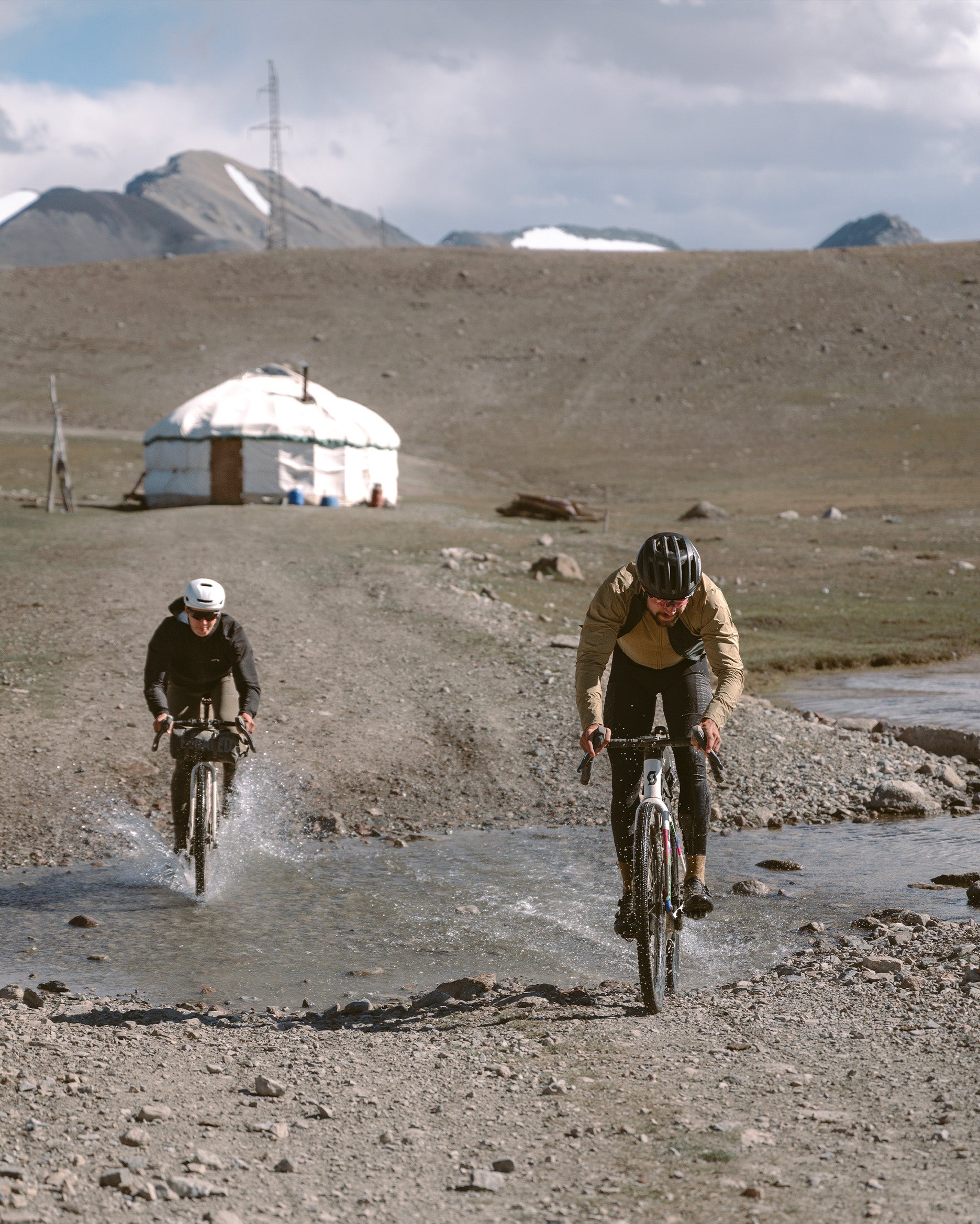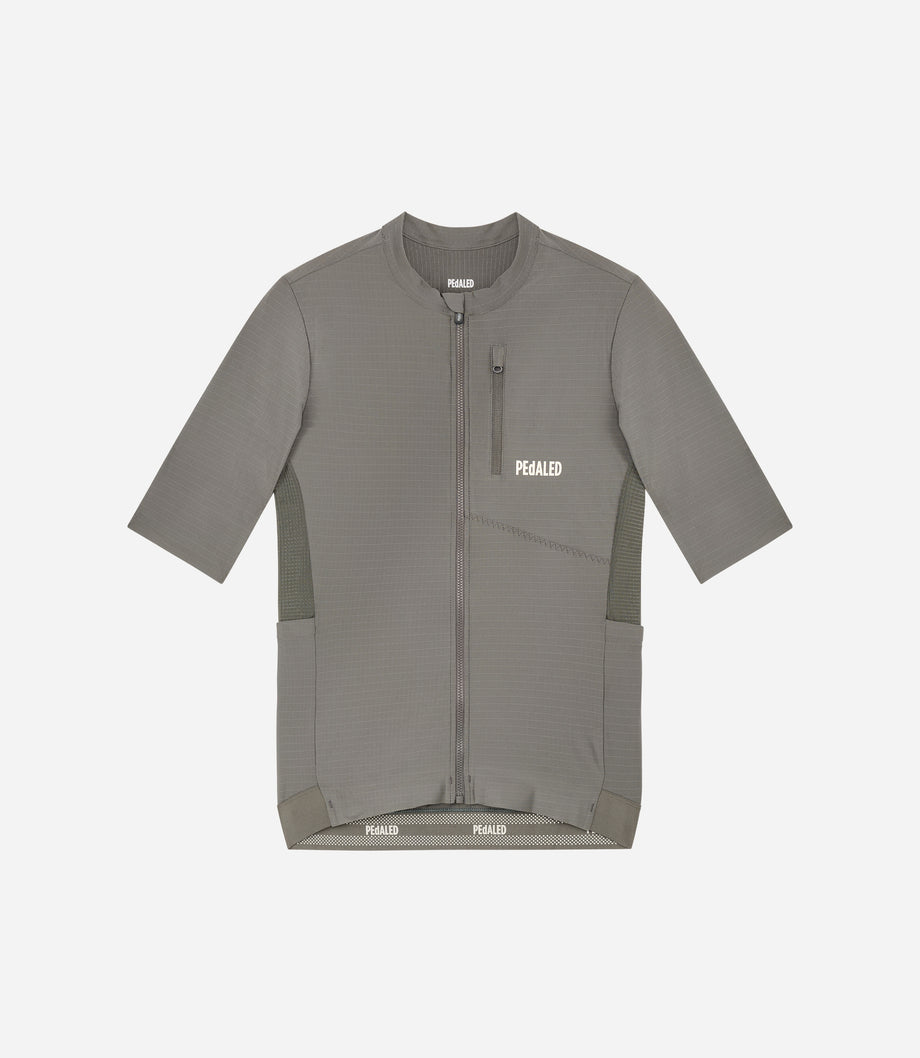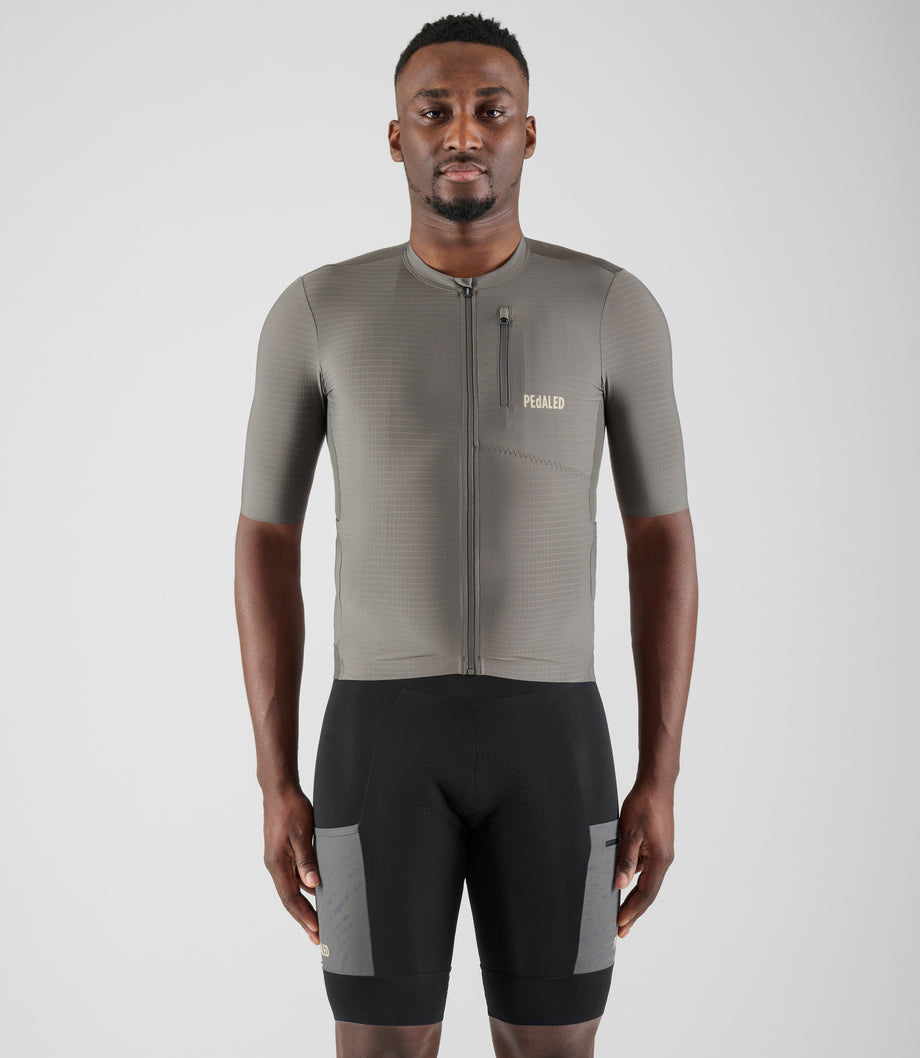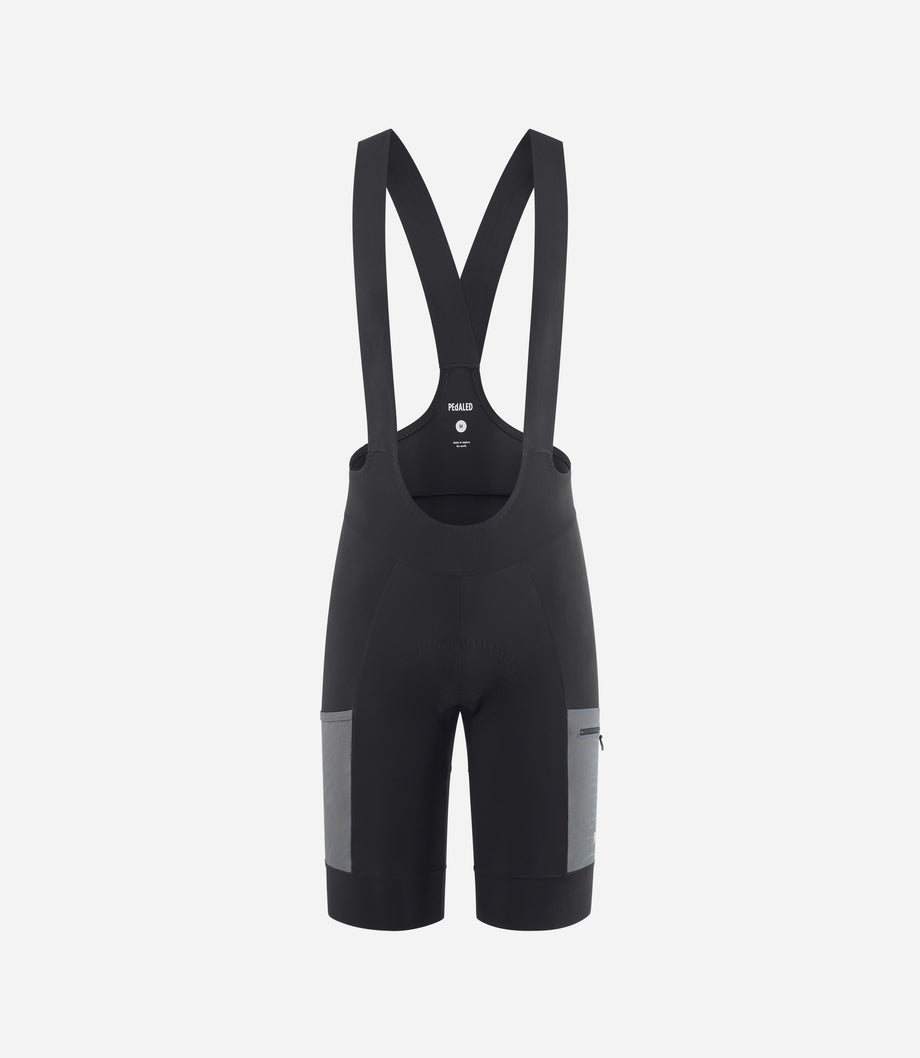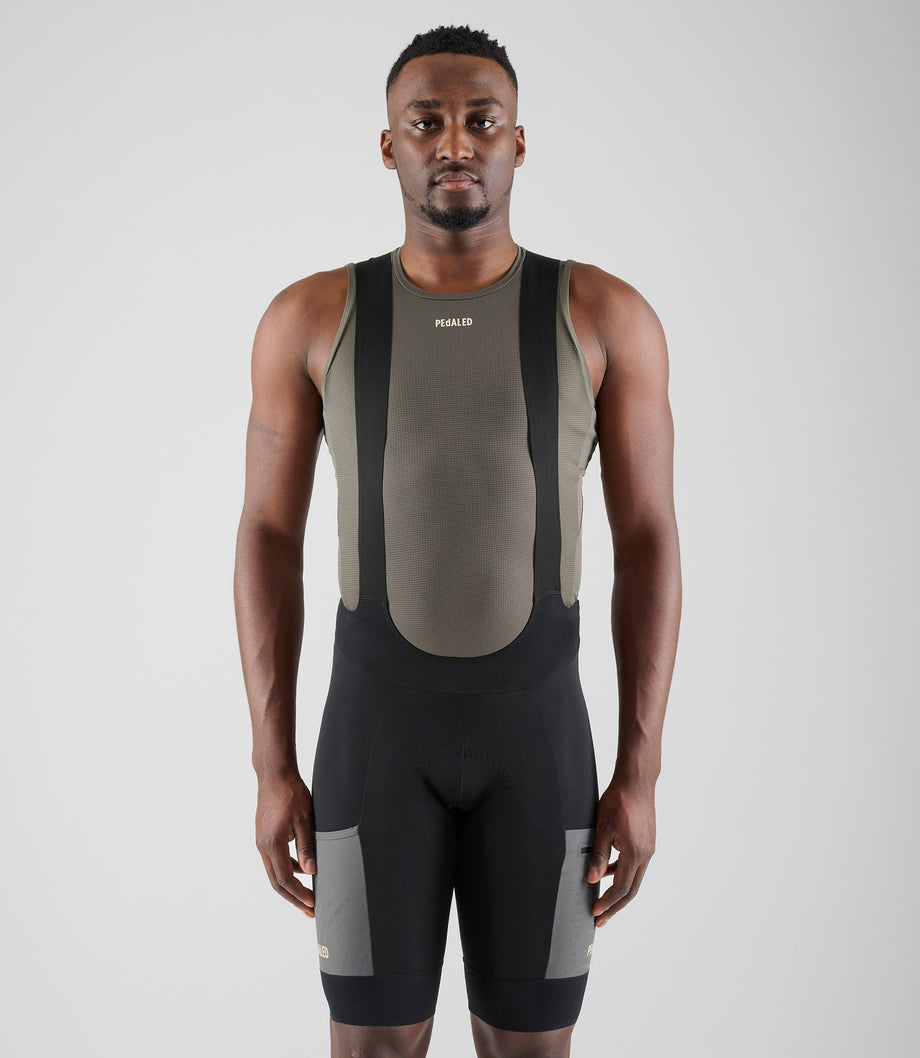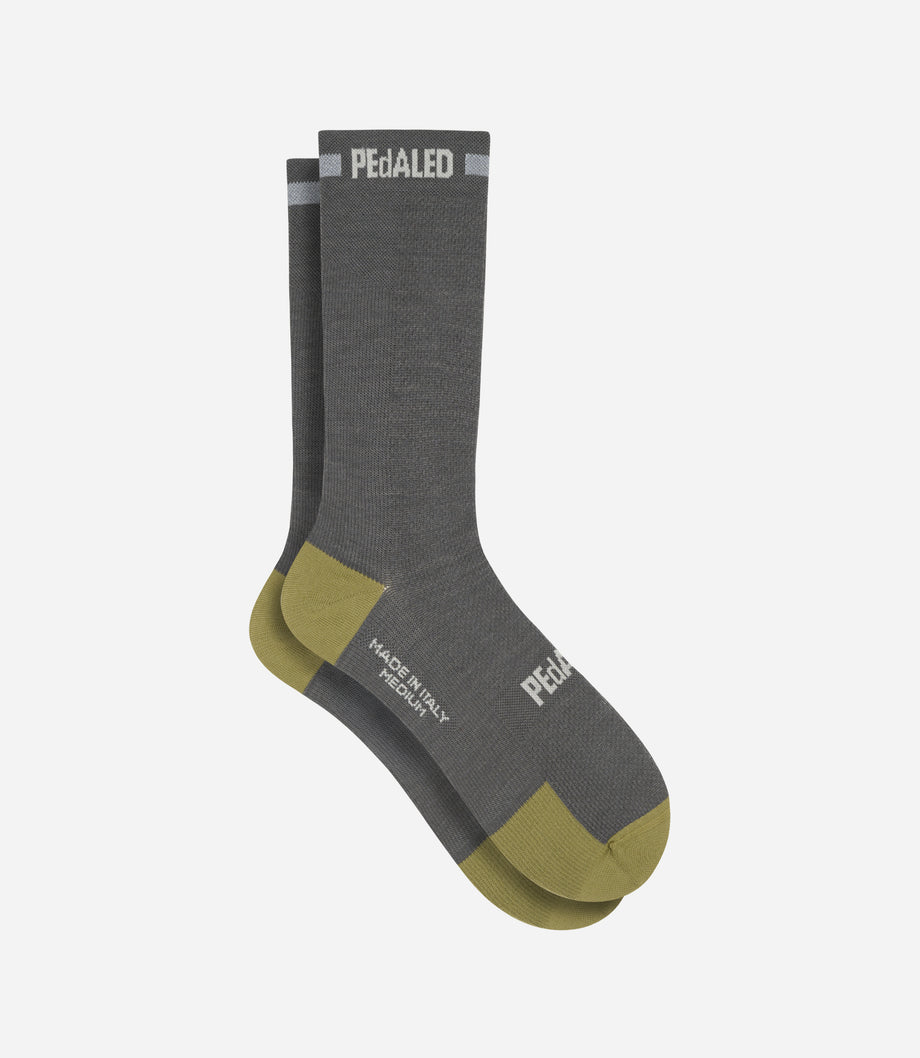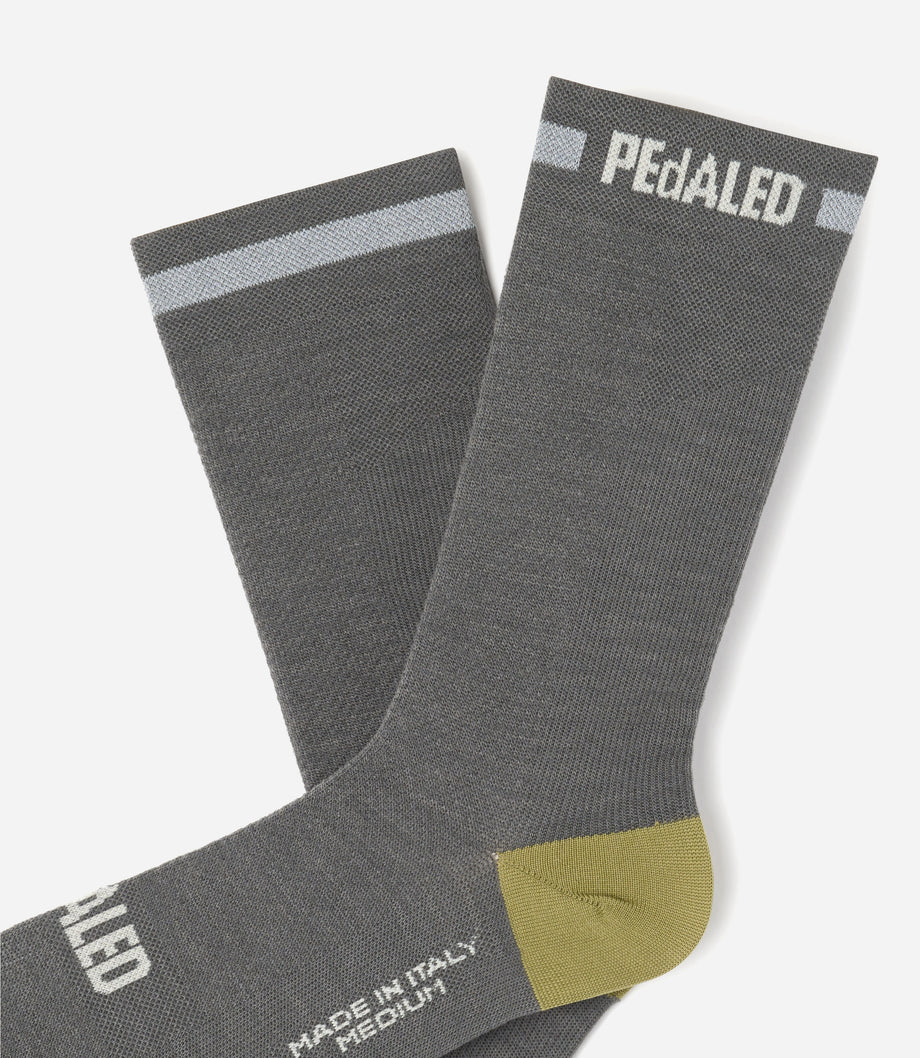Speaking of calories and resupplies, the Silk Road has seen many riders scratch due to illness. You seemed to be ok. Any strategy for avoiding stomach issues?
I think it’s funny, this is also something everybody talks about: getting sick in Kyrgyzstan. And when you look on social media, it really looks like everyone is getting sick in Kyrgyzstan, before the race, during, or at least after it. But it didn’t happen to me, so I wonder if I’m just lucky or if I have some conditions that really help me with these races. With all the other races I’ve done, I never have any issues with my stomach.
For me, I knew it was a danger, getting sick, and I paid attention to what I was eating. I was not eating any even slightly raw meat. I was not drinking any water from the taps. I really played it safe. But at this point, I kind of understand that it doesn’t happen to me.
From soaring temperatures to snow, this race seemed to have it all. Can you tell us what factor the weather played in your ride?
I always doubt if I’ll be able to ride in severe weather conditions. Because, for example, at the Tour Divide, I was very blessed with good weather. But I knew that at the Silk Road, this probably wouldn’t be the case, so I was a little scared. But when you actually do it, you realize it’s not that bad. Weather is usually scary but not really an issue.
I would say, there were a few situations where it really slowed me down and I had to adjust to the weather. One was on about the fourth day, somewhere up in a high valley where it was minus six degrees at five in the morning before the sun came up, and I just couldn’t continue riding. I had to stop for twenty minutes because the wind with the cold temperatures was just too much. I had to stop and jump around a little.
But the major issue was on the last night. I had planned to sleep again for 90 minutes because I believe this would have been faster, sleeping on the last night. But it was just too cold to stop, so I decided to ride through the whole night, which at the finish resulted in a 32-hour ride towards the finish, which was quite a lot and not optimal. But that also shows another good aspect of my tactics, which involves a lot of sleep. Because I had slept so much during the nights before, it was not such a big issue to push through the last night since I was not sleep deprived at all.
And this idea of sleeping a lot and pushing fast was a common theme for all the races? Did that change for any of them?
I would say maybe this is something that has changed in my approach to all three races. I remember during TCR, I was still not 100 percent sure if sleeping more than other riders would really pay off. Then I noticed, yes it does. Then I realized during the Tour Divide that you can really sleep a lot more than others. And now with Silk Road, it wasn’t an option to not sleep enough. It was clear that I would be sleeping for four-and-a-half hours every night. I always slept a lot, but the certainty that this was the right strategy increased during each race.






